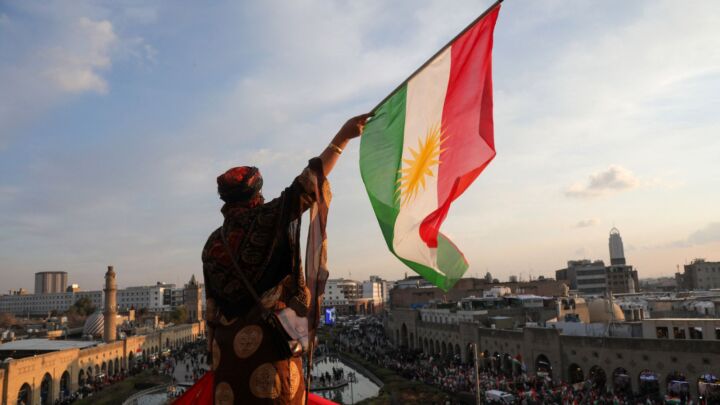If Europe is so free, why won’t it allow free debate on Ukraine?
The same Euro-politicians who claim to have delivered Ukraine into freedom now want to clamp down on free discussion about Ukraine.

Want unlimited, ad-free access? Become a spiked supporter.
The irony is almost too much to take. One month after EU politicians patted themselves on the back for helping Ukraine become a ‘free, democratic country’, the very same politicians tried to clamp down on free, democratic debate about what has happened in Ukraine.
At the European Parliament they’ve been putting together a resolution on the Crimea crisis for MEPs to vote on. And an odd coalition of Green and conservative MEPs, who are normally rivals, got together to suggest adding a line to the resolution that would both chastise and potentially even censor Gerhard Schröder, the former chancellor of Germany.
The proposed additional text said: ‘The European Parliament regrets statements made by former German chancellor Gerhard Schröder about the crisis in Ukraine, and suggests he should make no public statements about [this issue].’
No public statements about Russia or Ukraine? Upon what authority does the European Parliament think it can prevent any private citizen of Europe – whether it’s Schröder or some non-political mortal – from talking about one of the big issues of our time? The European Parliament’s agitation at Schröder, who has questioned European politicians’ posturing over Ukraine, even saying the EU made some ‘initial mistakes’ in how it dealt with the crisis, gives the lie to the idea that the inhabitants of Brussels are big fans of freedom or democracy.
The proponents of the Schröder-slamming resolution said they want him to stop talking publicly about Ukraine and Russia because he has a ‘clear conflict of interest’ on this matter. ‘[H]is relationship with Gazprom, a company that is one of Russia’s most important foreign-policy instruments’, has compromised him politically, they said.
Let’s leave aside the fact that for a parliament to try to shut up a man who has certain vested interests is as censorious in instinct as it would be for that parliament to try to silence a man in the street with zero stake in big corporations. The truth is that Brussels has simply been rattled by Schröder’s criticisms of its actions and his claims that the reality in Ukraine might be more complicated than many in the West will allow. Not at all unreasonably, Schröder has said that Russia has ‘fears about being encircled’ and that following the end of the Cold War there have been ‘unhappy developments’ on the fringes of its territory. For saying this, he has been a victim of ‘Merkel’s fury’, the press says, and now of attempts from Brussels to shut him up. Regardless of whether Schröder made his comments for cynical business-related reasons (probably) or for honest political reasons, it is their political content, their calling into question the actions of the West, that has really rattled the self-defined democratic saviours of Ukraine.
In the end, the anti- Schröder bit of the resolution was defeated. 208 voted against it. But 167 voted for it. Which is pretty shocking. That such a clause calling on a citizen to ‘make no public statements’ about Ukraine was proposed in the first place, never mind backed by 167 politicians, suggests this free, democratic sphere that Ukraine has apparently now entered into isn’t actually all that free or democratic. Welcome to the free world, Ukraine, where free discussion of Ukraine is denounced.
Brendan O’Neill is editor of spiked.
£1 a month for 3 months
You’ve hit your monthly free article limit.
Support spiked and get unlimited access.
Support spiked – £1 a month for 3 months
spiked is funded by readers like you. Only 0.1% of regular readers currently support us. If just 1% did, we could grow our team and step up the fight for free speech and democracy.
Become a spiked supporter and enjoy unlimited, ad-free access, bonus content and exclusive events – while helping to keep independent journalism alive.
———————————————————————————————————————————–
Exclusive January offer: join today for £1 a month for 3 months. Then £5 a month, cancel anytime.
———————————————————————————————————————————–
Monthly support makes the biggest difference. Thank you.










Comments
Want to join the conversation?
Only spiked supporters and patrons, who donate regularly to us, can comment on our articles.